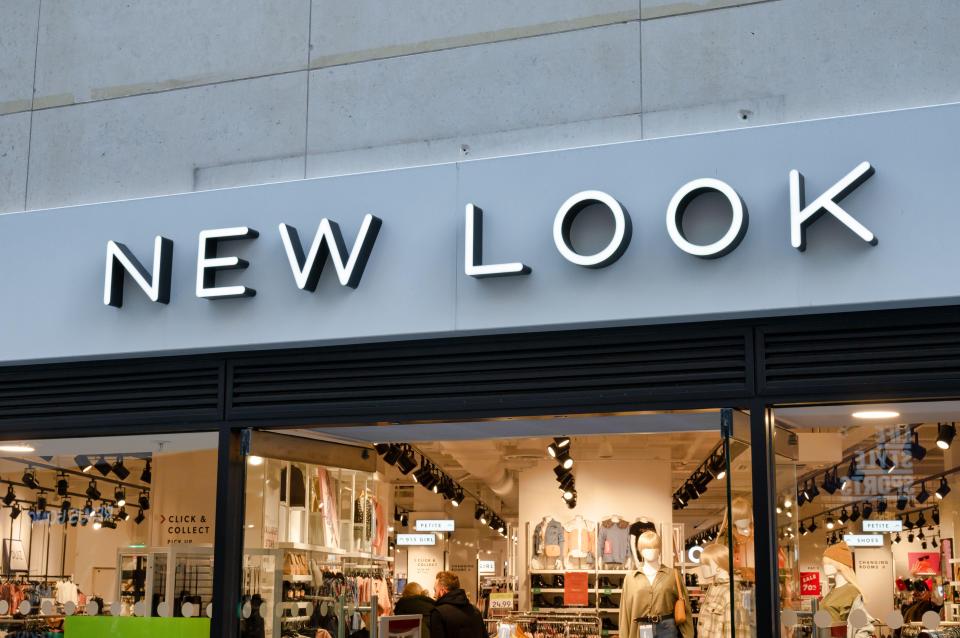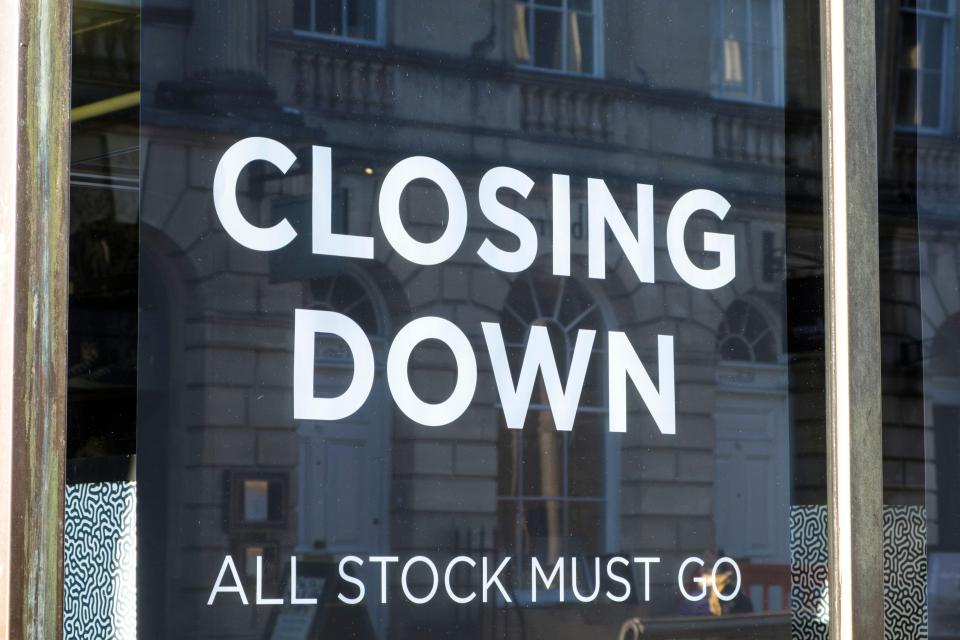A MAJOR high street fashion chain is shutting a busy town centre store for good, and it’s happening in just HOURS.
New Look will permanently close its branch at the Broadway Shopping Centre in Bexleyheath, south-east London, today after a huge closing down sale.
The fashion favourite, which has around 350 stores across the UK, launched massive discounts to clear stock, with prices slashed by up to 70 per cent.
Shoppers have been flocking to the store to grab bargains, with rails of clothes selling for as little as £3 for tops and £5 for summer dresses.
Locals said they had never seen the store so packed as people rushed to pick up last-minute deals before the shutters come down.
A New Look spokesperson said: “Our Bexleyheath store is set to close on 19 April.
“We would like to thank all of our colleagues and the local community for their support over the years.”
They added: “We hope customers continue to shop with us online at newlook.com, where our full product ranges can be found.”
The Bexleyheath closure is just the latest blow for New Look, which has been battling rising costs and tough trading conditions on the high street.
The chain recently warned that nearly 100 stores are at risk as leases end and business costs rise, including a hit from the increase in National Insurance contributions for employers announced last autumn.
Shoppers shared their sadness online, with one writing: “Sad for all the staff losing their jobs (my daughter included).”
Another posted: “All the ladies are losing their jobs, so sad.”
Bexleyheath joins a growing list of New Look closures this year, after stores in St Austell, Gateshead, and Preston shut their doors for good in March.
Earlier this year, branches in Porth, Loughborough, Wickford and Bracknell also closed down.
New Look once boasted around 600 stores across the UK back in 2018, but it has been scaling back rapidly as shopping habits shift and pressures mount.
The retailer has also pulled out of Ireland completely, shutting all 26 stores there last year and affecting 347 jobs.
Despite the closures, New Look said it remains committed to investing in its stores where possible, alongside major growth in its online business.
It recently invested over £3 million in Greater Manchester stores to trial new shopping experiences linking online and in-store shopping.
The Bexleyheath store will officially close its doors for the final time at 5.30pm tomorrow, leaving shoppers just a few more hours to grab a bargain before it’s gone for good.
Why are retailers closing shops?
EMPTY shops have become an eyesore on many British high streets and are often symbolic of a town centre’s decline.
The Sun’s business editor Ashley Armstrong explains why so many retailers are shutting their doors.
In many cases, retailers are shutting stores because they are no longer the money-makers they once were because of the rise of online shopping.
Falling store sales and rising staff costs have made it even more expensive for shops to stay open.
The British Retail Consortium has predicted that the Treasury’s hike to employer NICs from April 2025, will cost the retail sector £2.3billion.
At the same time, the minimum wage will rise to £12.21 an hour from April, and the minimum wage for people aged 18-20 will rise to £10 an hour, an increase of £1.40.
In some cases, retailers are shutting a store and reopening a new shop at the other end of a high street to reflect how a town has changed.
The problem is that when a big shop closes, footfall falls across the local high street, which puts more shops at risk of closing.
Retail parks are increasingly popular with shoppers, who want to be able to get easy, free parking at a time when local councils have hiked parking charges in towns.
Many retailers including Next and Marks & Spencer have been shutting stores on the high street and taking bigger stores in better-performing retail parks instead.
In some cases, stores have been shut when a retailer goes bust, as in the case of Carpetright, Debenhams, Dorothy Perkins, Paperchase, Ted Baker, The Body Shop, Topshop and Wilko to name a few.
What’s increasingly common is when a chain goes bust a rival retailer or private equity firm snaps up the intellectual property rights so they can own the brand and sell it online.
They may go on to open a handful of stores if there is customer demand, but there are rarely ever as many stores or in the same places.
The Centre for Retail Research (CRR) has warned that around 17,350 retail sites are expected to shut down this year.









